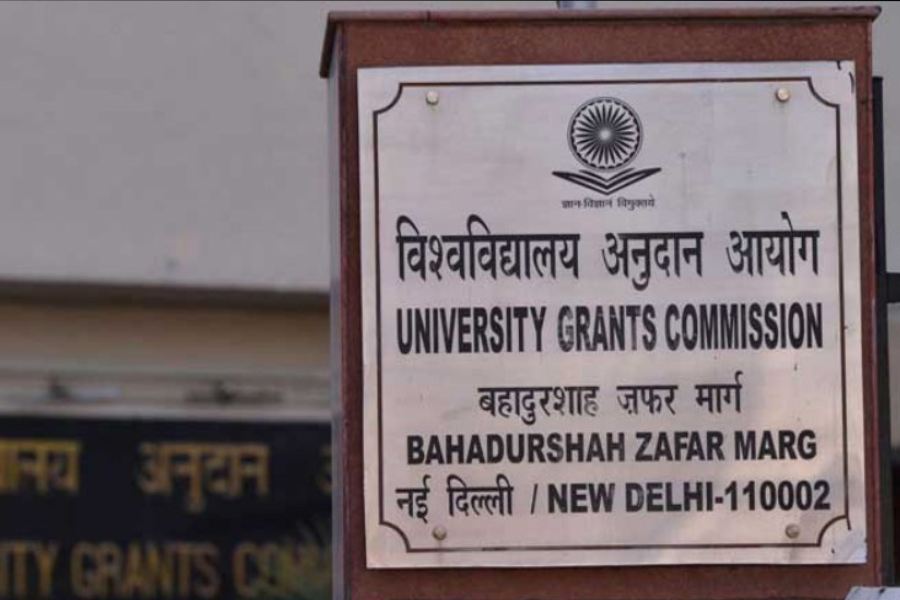UGC announces regulations to allow foreign varsities to set up campuses in India


The NDA government has notified rules to allow foreign universities to set up campuses in India, with some education experts suggesting the regulations are too strict to tempt the best global institutions but lax enough to attract profit-seeking second-stringers.
Some educationists asked why the regulations were not preceded by an act of Parliament that would have not just allowed debate and legislative scrutiny but placed the initiative on a firmer footing.
The University Grants Commission on Tuesday notified the UGC (Setting up and Operation of Campuses of Foreign Higher Educational Institutions in India) Regulations, 2023, after receiving approval from the education ministry.
Under these rules, any foreign higher educational institution that ranks among the top 500 global institutions — in either overall or subject-wise rankings — can apply to set up a campus in India. Permission would depend on a UGC scrutiny.
Such campuses can offer certificate, diploma, degree and research programmes at the undergraduate, postgraduate, doctoral and post-doctoral levels.
They can evolve their own admission processes and criteria for domestic and international students, decide their fee structure — which shall be “transparent and reasonable” — recruit faculty and staff from India and abroad based on their own qualification norms, and decide salaries and service conditions.
In contrast, Indian professional colleges — whose fees the foreign institutions are likely to emulate — are subject to the decisions of state governments’ fee-fixation committees.
Also, they can admit students only via state-level or central entrance tests. They have to follow regulatory norms to hire faculty members.
Whereas India’s general universities are somewhat bound by the UGC’s model curricula, the foreign varsities can design their courses as long as they don’t threaten India’s security or sovereignty.
“The operation of Foreign Higher Educational Institution shall not be contrary to the sovereignty and integrity of India, the security of the State, friendly relations with foreign States, public order, decency, or morality,” the regulations say.
Education is a not-for-profit sector in India. Yet the regulations allow the foreign institutions to repatriate their earnings. This could attract profit-seeking institutions that may have figured among the top 500 in some subject or the other in rankings by some or other agency, educationists said.
While the foreign institutions are not allowed to conduct online or distance-learning courses, online lectures for up to 10 per cent of the course requirements are allowed.
The UGC will have the power to visit the campuses and examine their operations.
Furqan Qamar, former vice-chancellor of the Central University of Himachal Pradesh and an expert on international education issues, said that enacting a specific law on the entry of foreign varsities would have been appropriate.
He said the topmost universities were unlikely to come since they would not want to be subject to the UGC’s scrutiny; nor would the number of foreign-bound Indian students drop.
He said the provision about not violating India’s “sovereignty and integrity” had “a lot of potential for misuse against any institution”.
“Reputable foreign universities are conscious of their quality of education and research. They may not want to be subject to UGC rules in general and such a provision in particular,” Qamar said.
He said young Indians were likely to continue going overseas to study since that would give them a chance to experience a foreign ambiance and educational system, which they may not get on the Indian campuses of foreign institutions.
“Studying in a foreign university would also be cheaper than studying on the Indian campus of the foreign university: students can subsidise their education in a foreign university through part-time work,” Qamar said.
“Also, they have the opportunity for post-study work in that country and later, perhaps, for residency. Such opportunities would be near-nil on the Indian campus of the foreign university.”
Lawyer Ravi Bhardwaj, who specialises on education issues, questioned the power given to Indian campuses of foreign varsities to grant degrees equivalent to those of Indian universities. He said such power cannot be granted via regulations.
He said Section 22 of the UGC Act says the right to confer or grant degrees belongs only to a university established under a central, provincial or state act, or an institution deemed to be a university, or an institution specially empowered by an act of Parliament to confer or grant degrees. “The campuses of foreign universities, as allowed under the new regulations, do not meet these requirements,” he said.
He further asked why the Indian campuses of foreign varsities should enjoy a degree of autonomy on admissions, fee structure and faculty recruitment that is denied to most Indian universities.